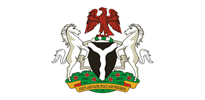Conduct Of Inconclusive Elections In Nigeria: The Ineptitude Of INEC
Ebele Ogwuda (Assistant Research Fellow @ NIALS)
Election is considered to be one of the key drivers of democracy because it engenders smooth transition in government, sustenance of democracy, accountability and transparency in governance. It involves a formal decision-making process by which the people select candidates that will occupy elective posts.
It is against this background that the Independent National Electoral Commission (INEC) was established under section 153 of the 1999 Constitution (as amended) and Section 1 of the Electoral (Amendment) Act, 2011 as an independent body solely responsible for conducting and coordinating elections and other ancillary matters in Nigeria. The role of INEC in the electoral process in Nigeria can therefore not be overemphasized.
In recent times, Nigeria has witnessed in quick succession, series of inconclusive elections that has resulted in supplementary elections being held in some of the affected areas of Kogi, Bayelsa, Rivers, Osun, FCT, Imo and Nasarawa states. These elections were characterized with violence which led to the death of people (including Corp members), destruction of properties, irregularities, poor turn-out of voters, malfunctioning smart card readers, theft of ballot papers, etc.
The foregoing has greatly undermined the confidence of voters, stakeholders (politicians) and provided fertile grounds for needless post-election petitions. This has become a worrisome norm rather than an exception and has also generated a lot of controversies regarding the ability of INEC to conduct credible and conclusive general elections in 2019.
Beyond the introduction and use of technological devices, logistics such as the Smart card reader, Permanent voters card, appointment of Resident Electoral Commissioners, proper funding, security, etc., concerted efforts have to be made by INEC and all stake holders to guarantee free and fair elections in the country.
To encourage voters participation, INEC should sensitize people more on their voting rights, the effects of violence and the consequences (punishment) of involving themselves in electoral malpractices, thuggery and so on. INEC could also take measures such as rescheduling or postponing elections where the body is not adequately prepared as was done in 2015 General elections pursuant to their powers under Section 26 of the Electoral Act which allows them to postpone the conduct of elections already scheduled to hold where there is strong reason to believe that there will be “serious breach of peace, natural disasters or other emergencies”.
By virtue of section 221 of the 1999 Constitution (as amended) and the decision of the Supreme court in Amaechi v. INEC (2008) 5 NWLR (Pt. 1080) p. 227 at 315, the combined effect of which is that it is the political party that wins election, political parties also have a crucial role to play in ensuring the conduct of conclusive elections. Political parties can achieve this by ensuring that their members do not abuse the electoral process and in turn frustrate the efforts of INEC.
References
Raymond Mordi, ‘Season of Inclusive Elections’ <http://thenationonlineng.net>
Azubuike Ishiekwene, ‘Yakubu and The Business of Inconclusive Elections http://leadership.ng/columns/482329
Saminu Ibrahim, ‘INEC: Tales of Inconclusive Elections’ http://www.mynewswatchtimesng.com/inec-tales-inconclusive-elections/
Kehinde Bolaji, ‘Toward Institutionalizing Credible Elections in Nigeria: A Review of Reform Measures by the Independent National Electoral Commission’ http://www.idea.int/publications/improving-electoral-practices/upload/iep_chapter_2.pdf
Oloniruha Emmanuel, ‘Inconclusive Elections: NGO calls for Electoral Act review’ http://nannewsnigeria.com/inconclusive-elections-ngo-calls-electoral-act-review
‘Group Laments Rate of Inconclusive Elections in Nigeria’ http://www.vanguardngr.com/2016/08/group-laments-rate-inconclusive-elections-nigeria/
This note was contributed by Ebele Gloria Ogwuda, Research Felllow, NIALS, Abuja. She can be contacted on: e.ogwuda@nials.edu.ng
Copyright © 2021 Nigerian Institute of Advanced Legal Studies. All rights reserved.

